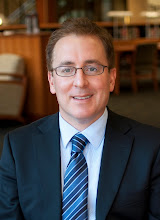Tuesday, November 30, 2010
Arresting Reporters at Demonstrations
Here is some very cogent commentary on this issue, from the First Amendment Center. When authorities militarize public places during protests and demonstrations, they tend to cast a wide net. Reporters and other law-abiding people are sometimes swept into those nets. Some of the examples cited in the commentary involve the recent protest at Fort Benning, which is discussed below.
Monday, November 22, 2010
Fort Benning Protest
The N.Y. Times published this interesting article today, about the annual demonstration at Fort Benning in Columbus, Georgia. Protesters have been gathering there for years to protest the training of Latin American military officers at the school of the Americas, which is affiliated with the Department of Defense. The article reports on the dwindling number of protesters, and some possible reasons for the decrease in activity. These include the bad economy, the apathy of young people, and the school's own efforts to engage the public and to draw attention away from the instruction they are providing. Also among the likely reasons for the decline: A more aggressive police response to protesters, and the imposition of jail terms for some of those who trespassed on the base. Recently, a small group of protesters tried to draw attention to their cause by demonstrating in the public streets. They were arrested, as were several other protesters who apparently failed to follow police instructions following a parade. The Fort Benning story highlights many of the challenges faced by modern protesters. Only some of these relate to protest policing. What was perhaps most surprising to me was the longevity of the Fort Benning demonstrations. Public contention of this sort requires no small commitment, and some traveled long distances to be a part of this event.
Saturday, November 20, 2010
LA Street Performers Get A Reprieve
As reported here, Batman, Zorro, and other characters remain free to perform on Hollywood Blvd. Police had increased patrols and arrests, apparently in reponse to complaints of aggressive panhandling and other behavior by some of the performers.
Wednesday, November 10, 2010
Residential Picketing and True Threats
As this report indicates, North Carolina authorities have charged an abortion protester with violating a new state law against targeted residential picketing. The Supreme Court upheld a residential picketing ordinance that prohibited the targeting picketing of a residence. In this case, the protesters distributed "Wanted" posters in the neighborhoods of abortion providers. The state has characterized this as stalking and threatening conduct. In the "Nuremberg Files" case, the Ninth Circuit upheld a civil verdict against abortion protesters for posting similar posters to the Web. In that case, the appearance of "Wanted" posters had been followed by the murders of abortion providers. The Ninth Circuit held that the posters constituted "true threats," which are unprotected speech. It will be interesting to see whether the North Carolina targeted picketing statute, as applied to the abortion protesters, withstands scrutiny under the First Amendment.
Street Preacher Victory
As reported here, a man who took to the streets of Greenville, SC to preach against homosexuality has won his case on appeal. The South Carolina Supreme Court found that a portion of the ordinance under which the preacher was arrested, which prohibited making comments that are "humiliating, offensive, scary or obscene," is unconstitutionally vague.
Monday, November 1, 2010
Moscow Protest as Microcosm
This story in the N.Y. Times, which reports on a small public protest in Moscow, demonstrates both the importance of public contention to speakers and the threat such assemblies can pose to authorities. The right of assembly is guaranteed in the Russian constitution. But this is a mere parchment guarantee. Protesters are routinely arrested and dealt with harshly by authorities:
In the past year, Russia’s leaders have been forced to discuss this group of protesters regularly. In an interview with the newspaper Kommersant in August, Prime Minister Vladimir V. Putin said that if they gathered without sanction, “They will be bashed on the head with a club,” and that a softer government position would only embolden them.
“If the objective is forcing concessions on the powers that be, and if the powers that be do buckle under, then provocations will be endless,” he said. “They will be staged again and again.”But times may be changing. At least so long as the protests remain relatively small and non-violent, the authorities may be willing to permit some public contention:
But in mid-October, Vladislav Surkov, the deputy director of the presidential administration, said he saw little threat in allowing the event, remarking that the regular confrontations had become “a sort of burlesque.”
“If in Moscow, a city of many millions, 200 people want to gather exactly on the 31st, exactly on Triumphal Square, in these modest numbers, let them gather,” he said in an interview. “I am sure the new mayor will make the right decision. And it will be a decision in the spirit of the president’s policies.”
Subscribe to:
Comments (Atom)

